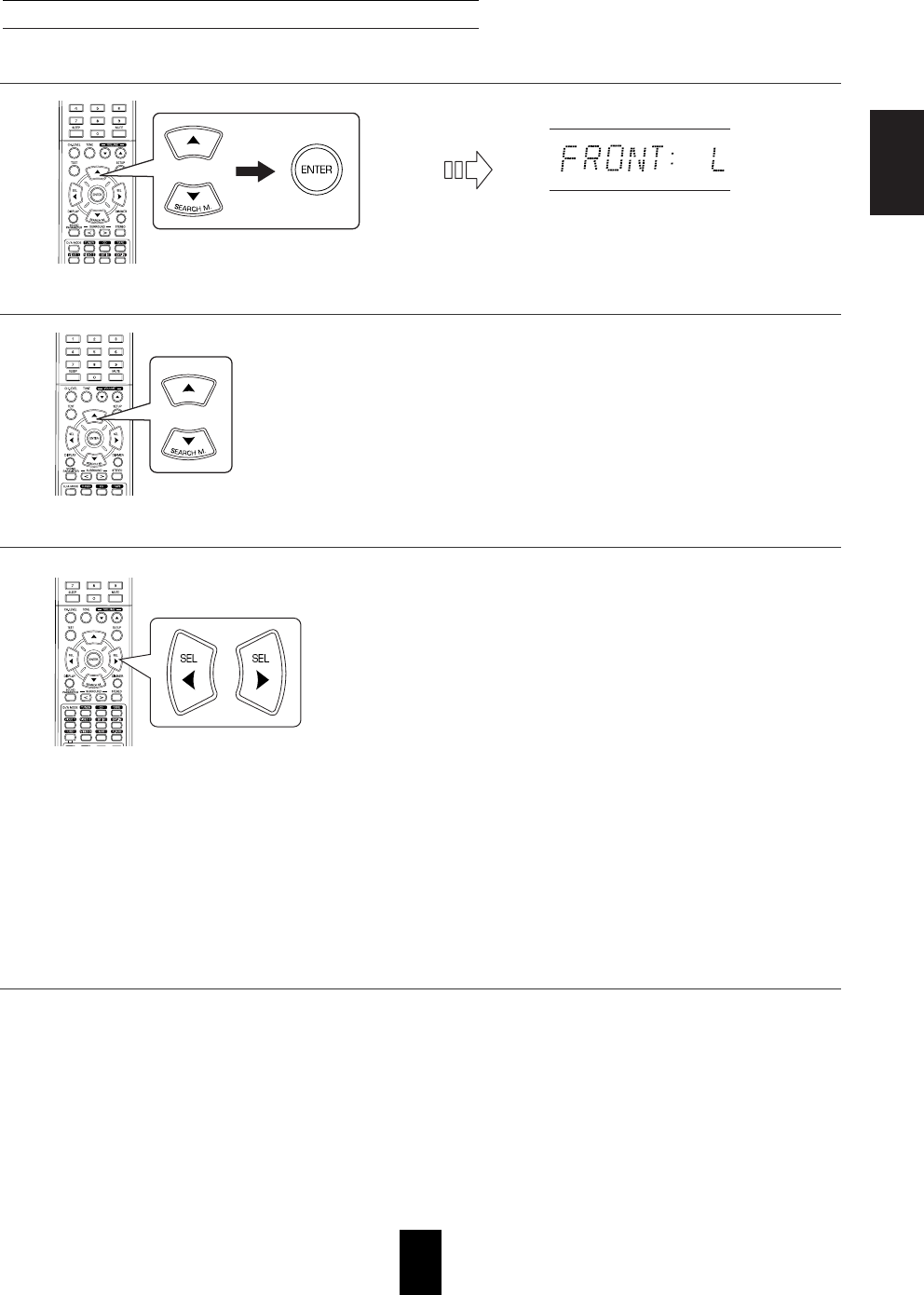
ENGLISH
39
• Depending on your speaker type, you can select one of these
following speaker types.
L(Large): Select this when connecting speakers that can fully
reproduce sounds below crossover frequency.
S(Small) : Select this when connecting speakers that can not fully
reproduce sounds below crossover frequency. When
this is selected, sounds below crossover frequency are
sent to the subwoofer or speakers which are set to "L
(Large)" (when not using a subwoofer)
N(None): Select this when no speakers are connected. When this
is selected, sounds are sent to the speakers which are
not set to "N (None)".
Y(Yes)/N(No): Select the desired depending on whether a
subwoofer is connected or not.
3. Press the CURSOR LEFT( )/ RIGHT( ) buttons to set the selected speaker as desired.
4. Repeat the above steps 2 and 3 until the speakers are all set to the desired mode.
2. Press the CURSOR UP( )/DOWN( ) buttons to select the desired speaker.
When selecting the CONFIGURATION
1. Press the CURSOR UP( )/DOWN( ) buttons to select the "CONFIG", then press the ENTER button.
Notes :
• When speakers are set to "S (Small)", you should set their crossover frequency correctly according to their frequency
characteristics. (For details, refer to "When selecting the CROSSOVER" on page 41.)
• When "SUB-W" is set to "N (No)", "FRONT" is automatically set to "L (Large)".
• When the "FRONT" is set to "S (Small)", "CENTER" and "SURR" cannot be set to "L (Large)".
About the speaker size
• Select "L (Large)" or "S (Small)" not according to the actual size of the speaker but according to the speaker's capacity for
playing low frequency (bass sound below frequency set on the "X-OVER" menu) signals.
• If you do not know, try comparing the sound at both settings (setting the volume to a level low enough so as not to damage
the speakers) to determine the proper setting.


















